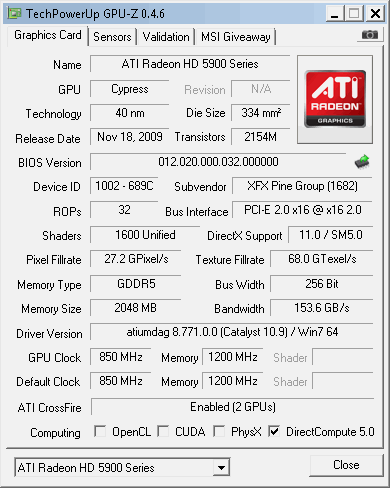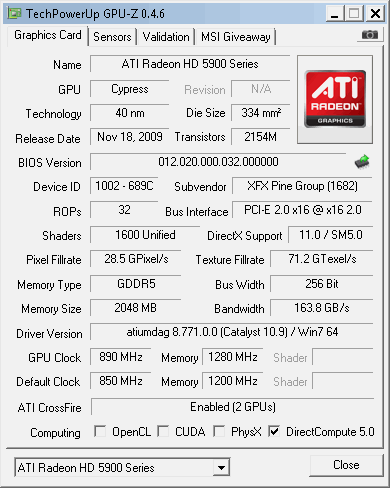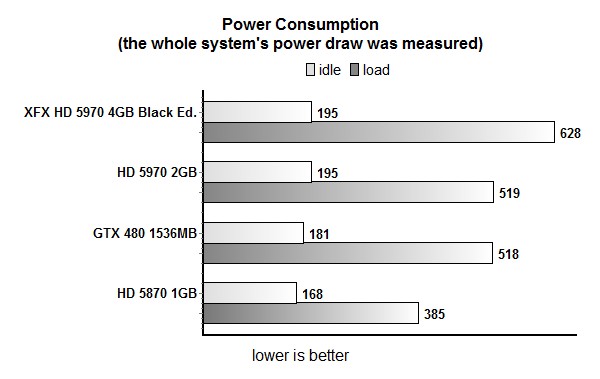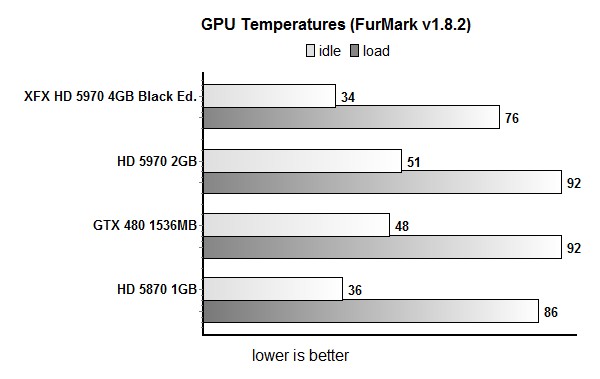Index
Unfortunately, we must admit we expected better results in overclocking XFX’s HD 5970 Black Edition. We pushed the GPU from 850MHz to 890MHz, which is 40MHz higher than the card’s original clocks but 165MHz higher than the reference card’s clocks. After our overclocking, the memory ran at 1280MHz (5120MHz effectively), which is 1120MHz higher than on the reference card. Overclocking helped the card score from 4-10% higher on gaming tests. 

As far as consumption goes, it goes without saying that an overclocked HD 5970 will consume more than a reference card, but at least idle consumption is identical. We measured our entire rig’s consumption (without the monitor). Note that our motherboard consumes quite a lot (in turn offering overclocking stability) so it is probably an overkill if you’re not using it to its full potential. 
In idle operation, HD 5970 Black Edition is louder than the reference card. It runs a bit louder than the reference card during operation, but both HD 5970 are still too loud for our taste.
XFX’s custom designed cooling and PCB have paid off bigtime when it comes to thermals. In fact, thermals are much better than on the reference HD 5970, as you can see from the picture below.



